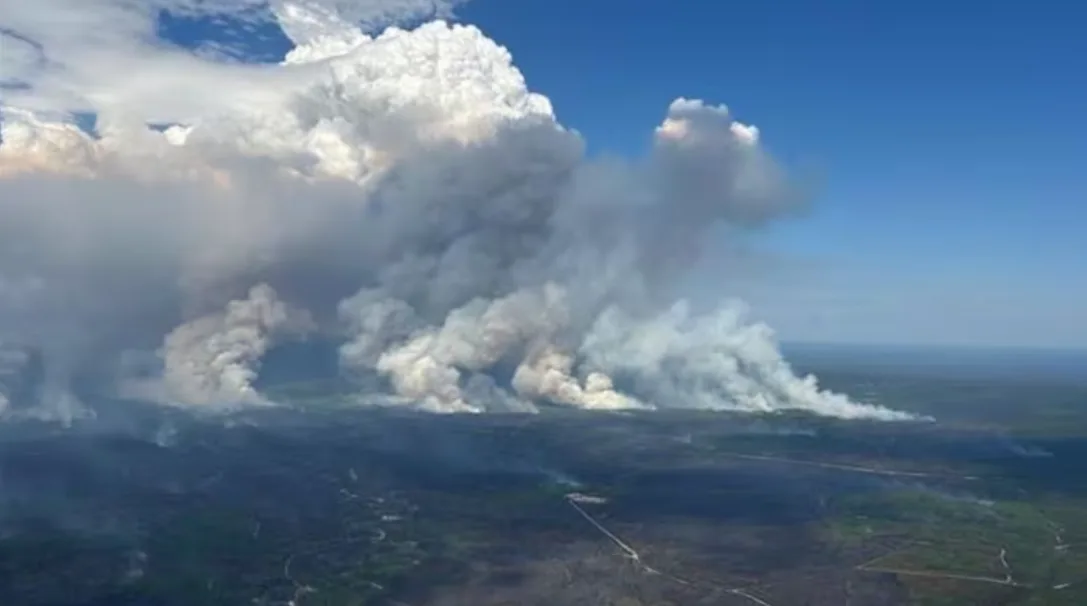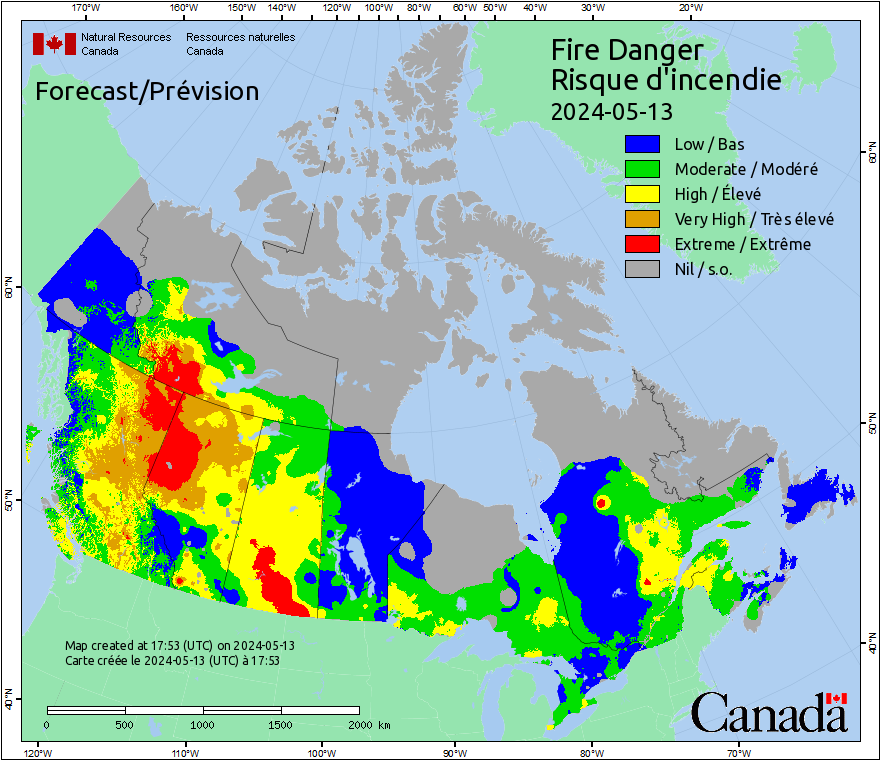
The current wildfire season could match Canada's most destructive year
One expert says Canada could be set to repeat its record-setting wildfire season from two years ago.
The area that wildfires have burned so far this year matches the rate at which fires spread in 2023, said John Vaillant, author of Fire Weather: The Making of a Beast, during an interview on CBC Morning Live on Thursday.
By the end of 2023, more than 6,000 fires had torched an unprecedented 15 million hectares across Canada.
DON'T MISS: The Weather Network's wildfire hub
"Just two years ago was the worst fire season in Canadian history by far, and what I'm really sorry to say … is 2025 looks like it's shaping up to be a repeat of 2023," said Valliant.
"In terms of hectares burned by this date, we're on pace with 2023 right now."
Currently, Canada has three times the amount of land area burned from wildfires compared to the 10-year average, according to statistics from Natural Resources Canada. As of May 30, more than 1,400,000 hectares have been burned across Canada due to wildfires this year.
Saskatchewan and Manitoba are the two provinces that have seen the most land burned by wildfires this year.
As of May 30, Manitoba and Saskatchewan had almost five times and 10 times their average amount of hectares burned by wildfire compared to the 10-year average.

June weather is crucial
The extreme fire conditions can be attributed to an early heat wave in the eastern Canadian Prairie region, with temperatures hitting as high as 38 C in Manitoba, said Kyle Brittain, an Alberta-based weather specialist, in an interview on Edmonton AM this week.
"If we look back through the month of May, it was warmer and drier than average through a huge chunk of the Prairie provinces where most of the bad fire situation has really been focused," Brittain said.
"So anytime you have these extreme heat events that just really contributes to the drying of the forest fuels and then it's really hot, dry, windy weather on the day-to-day that can really contribute to these rapid rates of spread in the extreme fire behaviour that we've been seeing."
Whether or not Western Canada will see its wildfire situation improve will depend on the amount of rain in June, said Brittain.
"It's June, Western Canada's wettest month … If the rains show up, it can tilt the season either way. If they don't show up, we're almost guaranteed to have a pretty bad fire season persisting."
This article, written by Cameron MacCuish, was originally published for CBC News on June 6, 2025.
Thumbnail image credit to Alberta Wildfire.